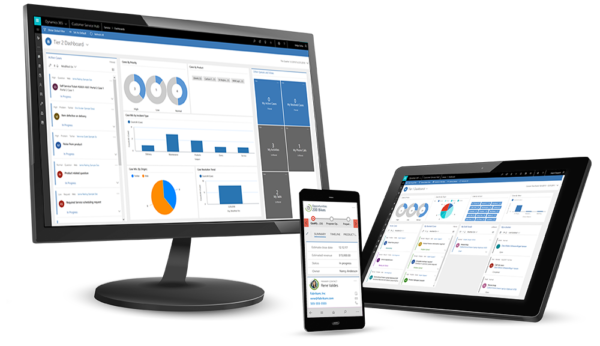Table of Contents
Introduction to Dynamics CRM
In the context of the current digital world, small businesses encounter numerous challenges. One of the new emerging tools is Dynamics CRM, which could change the game. Today, as small businesses evolve, the most critical challenge is competing within their respective industries. Dynamics CRM offers various solutions with the hope of promoting small businesses. Yet, we must evaluate if the platform is indeed the very solution enterprises are looking for, or just a shocking addition to the company’s expenditures.
In today’s world, small businesses have gained a digital footprint and are now more focused than ever on being competitive, and being poised to perform a company is only possible with a robust customer relationship management system. As we analyze Dynamics CRM’s attributes, we must first understand the bulk of its CRM services and whether the investment would, in the long run, if not pay for itself, at least provoke a slow bleed in the company’s finances.
Benefits of Dynamics CRM for Small Businesses

Dynamics CRM includes all the tools needed for proper management of customer relations. For small businesses, this translates to more efficient communication and better service provision.
One of the most notable advantages is the unified database. Proprietary information is available to all clients, with the pertinent information being recorded from every interaction. This contributes to client contentment and the ability to service them more rapidly.
There are also automation workflow features. It assists small business owners with strategic business decisions instead of repetitive data input tasks.
Furthermore, businesses can readily avail themselves of and make use of insightful analytics. Businesses that aim to provide value or customer satisfaction can focus on the most pertinent customer needs, which will result in increased customer satisfaction. As team members engage on the platform, cooperation becomes effortless. Improved team collaboration increases the rate of innovation, which augments growth in many opportunities in other areas.
Challenges of Implementing Dynamics CRM
Implementing Dynamics CRM can be daunting for small businesses. The multifaceted features embedded in the software make the system difficult to learn. Training becomes a fundamental requirement, which can lead to a loss of economic resources. Employees are likely to resist change, which can lead to a temporary dip in productivity in the workplace during the shift.
Another challenge is customization. Although customization is an advantage, meeting specific requirements can be very costly in terms of resources. Small teams may not have the necessary IT support to help them with this.
Careful strategizing and execution are needed to seamlessly integrate existing data into Dynamics CRM, which makes data migration a challenge. Meeting these requirements can be particularly tiresome for smaller businesses, particularly due to a buildup of maintenance and updates that seem necessary. The burden of these responsibilities is likely to be overbearing.
Cost Analysis: Is it a Smart Investment?
Cost assessment is critical when evaluating Dynamics CRM. For small businesses, every dollar spent needs to be justified. Dynamics CRM offers various pricing tiers. Fee structures are chargeable based on features and users. This is a plus for small teams with plans to scale at a steady pace. Such advantages as outlined above do come at a price. Execution needs its fair share of time and resources, which may strain operations during that period. Training staff incurs an additional expense that should not be ignored either.
On the other hand, the investment made in Dynamics CRM may significantly improve operational efficiency and elevate customer relations. For many businesses, just the improvement in sales tracking may warrant the initial investment. Evaluating the financial factors along with the anticipated returns will reveal whether this investment will move the needle and position the business favourably towards its goals. It is a pivotal choice that requires judicious thought before jumping in based on a hasty decision.
Success Stories of Small Businesses Using Dynamics CRM
Small businesses all over the globe are leveraging the power of Dynamics CRM as a goldmine for success. Consider a local bakery that had a hard time retaining its customers. They managed to track customer order histories and preferred using Dynamics CRM. Tailoring services to customer needs improved sales and repeat business for the bakery.
Another inspiring tale is from a small consulting firm. They focus on increasing internal team relations and project management. The application of Dynamics CRM within the firm improves communication and collaboration, which increases efficiency and satisfaction.
A small to mid-sized e-commerce company identified business growth opportunities offered by CRM data analytics. Understanding their customers’ unique needs, they carefully designed and executed marketing strategies. The customer-centric policies improved their sales and profits remarkably within one fiscal year.
Small conglomerates are finding opportunities using Dynamics CRM. The integration of analytics CRM data offers transformative opportunities for businesses from all sectors.
Alternatives to Dynamics CRM for Small Businesses
Small businesses looking for alternatives to Dynamics CRM have many CRM options to choose from. A widely adopted one is HubSpot CRM, which has a free tier offering basic contact and email management. For both low price and great customization options, Zoho CRM is hard to beat. Its low cost makes it a good choice for businesses that want flexibility and a lot of integrations. Another alternative is Freshsales from Freshworks. This platform has excellent tools for automating parts of the sales funnels, and it excels in lead management.
For users looking for ease of use, Pipedrive may be the solution. It enables easy pipeline management thanks to its excellent user interface. Small businesses have many alternatives to choose from, with each offering different customizations and pricing. With a bit of exploration, companies can find great tools that surpass different traditional paradigms.
Conclusion
For small businesses looking to optimize operations, relations with customers and internal processes, Dynamics CRM can be a powerful tool. Its numerous features can range from better data handling to superior tracking of sales. Within small businesses, the implementation process can sometimes be problematic and requires attention. Different small companies have had successes with CRM systems and reporting Dynamics, and other systems such as these tell another narrative on the potential of other small businesses when CRM systems are used.
There are other available options for those who find that Dynamics CRM does not meet their budgets or does not serve their needs. Those options serve better and still have the needed character of flexibility and features. Further along in this journey, consider whether Dynamics CRM is an innovative business for small customers who are a crucial part of the CRM. Understand self-clearly in a self-guided analysis, the situational requirements will direct users to analyze and think thoroughly when guiding them toward a solution.

 Microsoft Dynamics CRM: Why It’s a Trusted Choice for Growing Businesses
Microsoft Dynamics CRM: Why It’s a Trusted Choice for Growing Businesses